

While topical lotions and creams may help treat the immediate discomfort of dry skin, they may not address the underlying cause. Adding the right vitamin subscription or supplement may rejuvenate and hydrate your skin from the inside, helping you to avoid dry skin from the start. Here are some of the most important vitamins for skin health and the best supplements for dry skin that we recommend.
Our 7 Top Supplements for Dry Skin
Each product featured here has been independently selected by the writer. You can learn more about our review methodology here. If you make a purchase using the links included, we may earn commission.
- Best Vitamin D Supplement – Nested Naturals Vegan D3 + K2
- Best Vitamin C Supplement – Global Healing Liquid Vitamin C
- Best Collagen Supplement – Sunwarrior Vegan Collagen Capsules
- Best Collagen Protein Powder – Bulletproof Beauty Boost
- Best Fatty Acid Supplement – Vital Plan Krill Oil Plus
- Best Skin Moisturizer – Beekeeper’s Naturals B.Powered Superfood Honey
- Best Vitamin Spray – Onnit Vitamin D3 Spray
What are the Most Important Vitamins and Minerals for Dry Skin?
Here are some of the vitamins and minerals that can play an important role in maintaining your skin and preventing it from drying out.
Vitamin D – Vitamin D plays a a critical role for many aspects of your body’s health, including your skin. It is important for skin barrier function and skin cell growth, as well as maintaining the skin immune system, which acts as a first line of defense against harmful pathogens. Low levels of vitamin D are linked to dry skin and certain skin conditions.
Vitamin C – Vitamin C is another crucial component of healthy skin, as it plays a role in both the production of collagen and serves as a protective antioxidant. The skin contains naturally high levels of vitamin C which may help prevent moisture loss by supporting skin barrier function. This vitamin is also found in supplements to boost the immune system.
Collagen – Collagen is one of the single most important proteins in the body, and in fact makes up the majority your skin. Taking a collagen supplement may help improve skin elasticity and hydration, potentially reducing the appearance of wrinkles and helping to maintain proper skin moisture.
Fish Oil – Fish oil contains two essential fatty acids, DHA and EPA, that are extremely important to skin health. They help make up the barrier made of fatty acids in the skin that helps lock in moisture to prevent dryness. Fish oil, or krill oil supplements, can also help reduce inflammation and protect against sun damage.
Hyaluronic Acid – Sometimes used in topical ointments, hyaluronic acid plays a key role in skin hydration and elasticity. One study found that hyaluronic acid supplements improved the skin’s moisture and elasticity which reduced wrinkles and roughness.
Probiotics – Certain probiotics may not only help improve digestive health, but could also play a role in boosting skin health as well. Researchers in one study found that administering a certain type of good bacteria for the gut also boosted the skin barrier and improved skin hydration.
How We Chose the Best Vitamins and Supplements for Dry Skin
To create our list of the best vitamin and mineral supplements for dry skin, we compared brands and products by looking at a number of factors. These included:
- Ingredients – We looked for supplements that used plant-based or vegan sources for their ingredients versus animal-derived sources. We also chose products made without artificial fillers, colors, or sweeteners.
- Lab Testing – We prioritized supplements that undergo independent third-party lab testing for quality and safety.
- Allergen Free – The best vitamin supplements should also be free from soy, gluten, dairy, and peanuts.
- Backed By Science – It’s important to know what is included in a supplement and why. We looked for supplements that were either backed by clinical research, doctor-formulated, or offered the science behind their vitamins and minerals.
- Customer Experience – We checked reviews from actual customers to see if the supplement worked as described and if they recommended it. The best brands also offered a money-back guarantee on their products.
The 7 Best Vitamins and Supplements for Dry Skin
Best Vitamin D Supplement: Nested Naturals Vegan D3 + K2
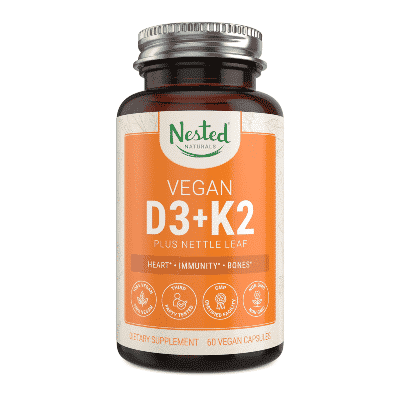
nestednaturals.com
- Vitamins/Minerals – Vitamin D3, vitamin K2
- Ingredients – Nettle leaf extract, vegetable cellulose capsule, magnesium stearate
- Great For – Strong bones, cardiovascular health, positive mood, brain health, skin health
Why buy: Nested Naturals Vegan D3 + K2 capsules can provide an all-in-one “sunshine vitamin” supplement. We love that their vitamin D3 is derived from lichen, and their vitamin K2 comes from chickpeas, meaning this is a completely cruelty-free and vegan way to boost your intake of these important nutrients. These capsules also contain nettle leaf extract for additional wellness benefits.
Best Vitamin C Supplement: Global Healing Liquid Vitamin C
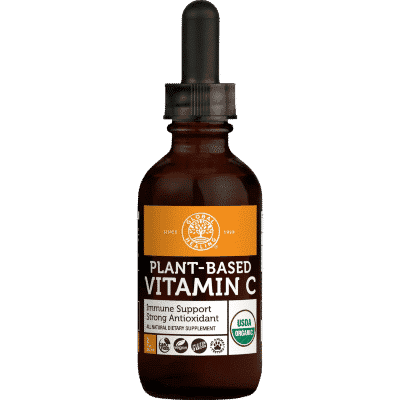
globalhealing.com
- Vitamins/Minerals – Vitamin C
- Ingredients – Organic amla fruit extract, organic acerola fruit extract, organic kakadu plum fruit extract, organic camu camu fruit extract, organic rosehip whole plant extract, organic glycerin, triple-distilled water, organic plant essence blend, energized trace minerals
- Great For – Supporting immune function, collagen and protein production, cardiovascular health, strong antioxidant
Best Collagen Supplement: Sunwarrior Vegan Collagen Capsules
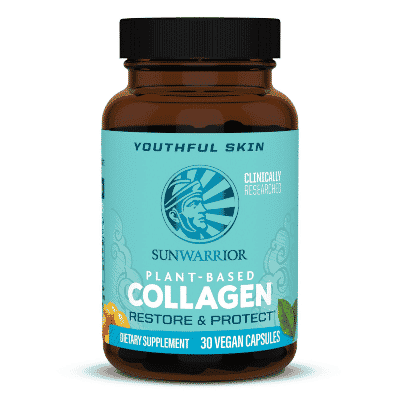
sunwarrior.com
- Vitamins/Minerals – Collagen
- Ingredients – Organic sea buckthorn, panax Korean ginseng root extract, pomegranate extract, asparagus, okra, coffeeberry extract, quercetin, acerola, camu camu, açai berry, and mangosteen, vegetable capsule
- Great For – Skin elasticity, repairing sun damaged skin, joint health, cell regeneration
Best Collagen Protein Powder: Bulletproof Beauty Boost
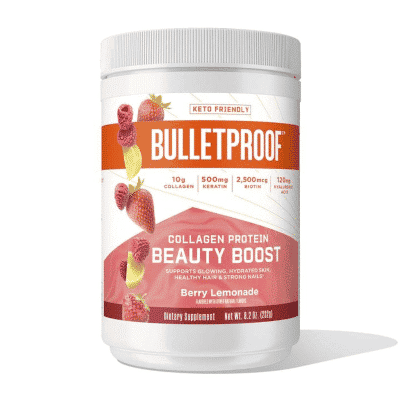
bulletproof.com
- Vitamins/Minerals – Collagen, keratin, biotin, vitamin C, hyaluronic acid, B vitamins, zinc, copper
- Ingredients – Fruit and vegetable juice, citric acid, sodium, malic acid, stevia leaf extract.
- Great For – Skin elasticity and hydration, strong hair and nails
Why buy: Bulletproof Beauty Boost is a collagen protein powder you can mix with water or smoothies for a nourishing supplement to help support healthy skin, hair, and nails. We love that it contains grass-fed collagen peptides for better skin elasticity, hyaluronic acid to moisturize the skin, vitamin C to help keep your skin protected, and biotin and keratin to support strong hair and nails.
Best Fatty Acid Supplement: Vital Plan Krill Oil Plus
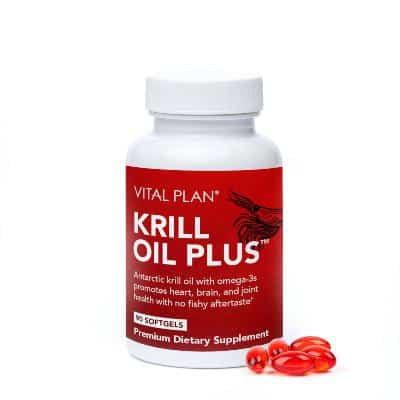
vitalplan.com
- Vitamins/Minerals – DHA and EPA omega-3 fatty acids, choline, astaxanthin
- Ingredients – Sustainably harvested krill oil, gelatin, glycerol, sorbital
- Great For – Promoting cardiovascular, brain, joint, immune, and skin health
Best for Skin Moisture: Beekeeper’s Naturals B.Powered Superfood Honey

beekeepersnaturals.com
- Vitamins/Minerals – B vitamins, vitamin C, iron, antioxidants, acetylcholine
- Ingredients – Raw enzymatic honey, royal jelly, raw bee pollen, bee propolis extract
- Great For – Immune support, increased energy, brain function, enhanced skin moisture barrier
Best Vitamin Spray: Onnit Vitamin D3 Spray
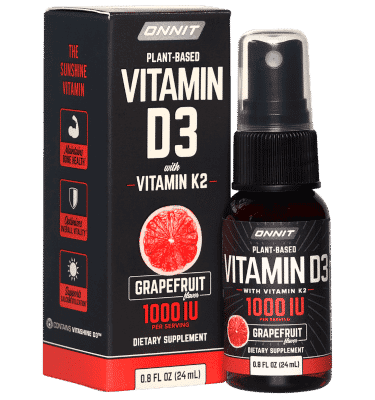
onnit.com
- Vitamins/Minerals – Vitamin D3 (Cholecalciferol), vitamin K2 (Menaquinone-7), vitamin E
- Ingredients – MCT coconut oil, olive oil, natural flavors, stevia leaf extract
- Great For – Bone, heart, and skin health, plus mood and vitality
Why buy: We like this vitamin D3 spray from Onnit because it offers plant-based vitamin D plus vitamin K2 in a convenient and easy to take form. The vitamin D itself is extracted from lichens and is paired with K2 to help direct the calcium in your body to the places it needs it most. This vitamin spray is a great way to get the vitamin D your body needs to maintain healthy skin, especially if you’re stuck inside and can’t get proper sun exposure.
The Research on Vitamin Supplements for Dry Skin
Research indicates that certain vitamins and supplements, including vitamin D, vitamin C, fish oil, collagen, and even some probiotics, may help to manage and improve dry skin.
Vitamin D supplementation has been shown to reduce the severity of symptoms from certain skin conditions, specifically atopic dermatitis (AD), or eczema. Deficiencies in vitamin D have also been linked to certain skin diseases like psoriasis and acne. One study also demonstrated a relationship between vitamin D levels and skin moisture levels.
Vitamin C plays a wide variety of roles in skin health. Cell culture studies have found that vitamin C can enhance the production of barrier lipids that help form the skin’s moisture barrier. The antioxidant properties of vitamin C also make it important in protecting the skin from UV damage.
The fatty acids found in fish and krill oils have widely-known applications for cosmetic and therapeutic benefits for the skin. Fish oil helped to improve the symptoms of patients suffering from psoriasis in one study, and it has also proven to help reduce skin inflammation from sun damage. Collagen has also been shown to directly benefit skin health. A study of oral collagen supplements found that they resulted in improved skin elasticity and skin hydration over a placebo.
How to Choose the Best Vitamins and Supplements for Dry Skin
As with any natural supplement, it’s important to make sure that you are selecting products that are safe, effective, and transparent. Here are some tips to use when shopping for dry skin vitamins and supplements.
What to Look For
These are some of the most important factors to keep in mind when comparing supplement options.
Transparency: Look for brands that clearly label all of the ingredients in their supplements. You should know exactly what is in each supplement and how it was derived.
Natural Ingredients: Choose brands that use plant-based or organic ingredients for their vitamins and minerals. If they do use animal-derived compounds, make sure that they are ethically and sustainably sourced.
Lab Testing: The best way to make sure that a supplement is safe and effective is to look for proof of independent third-party lab testing.
Clinical Science: You can always look for information on whether a vitamin supplement is doctor-formulated or backed by clinical research.
How to Read Labels
Make sure that you take the time to read the label of all vitamin supplements. Specifically, look for these pieces of information.
- Ingredient List – Check the ingredient list to make sure that you are not allergic to anything In the supplement.
- Amount – Look to see how much of the specific vitamin is present in each serving size of the supplement so that you can take the correct amount.
- Suggested Use – Many brands include guidelines for use that can help you know how much of the supplement to take and when.
- Free From – You can check the label to see if a supplement is vegan, non-GMO, and if it is free from allergens like gluten, dairy and soy.
Safety & Side Effects
Like any dietary supplement or medication, vitamin supplements for dry skin may cause certain side effects if you take too much. According to the National Institutes of Health (NIH) Office of Dietary Supplements, the recommended amount of vitamin D for most adults in a day is 600 international units (IU), or 15 micrograms (mcg). The upper limit of vitamin D the average adult can intake from all sources, including food and supplements, in a day is 4,000 IU (100 mcg). Having too much vitamin D in your bloodstream can result in side effects including:
- Nausea
- Vomiting
- Muscle weakness
- Confusion
- Pain
- Loss of appetite
- Dehydration
- Excessive urination and thirst
- Kidney stones
For vitamin C, the NIH recommends a daily amount of 75 mg for most adult women and 90 mg for most adult men. The upper limit of vitamin C intake for adults is 2,000 mg. Ingesting too much vitamin C can result in side effects like diarrhea, nausea, and stomach cramps.
The NIH recommends 1.1 g of omega-3 fatty acids for women and 1.6 g for men per day. According to the USDA, adults should limit their intake of omega-3 fatty acids to no more than 3 g per day. The side effects of consuming too much omega-3 are mild and may include things like an unpleasant taste, bad breath, heartburn, nausea, stomach discomfort, diarrhea, headache, and smelly sweat.
Extremely high levels of vitamin D, vitamin C, and omega-3 fatty acids can also interact with certain medications. Be sure to consult with your doctor before adding a vitamin supplement to your diet if you take prescription medications.
Takeaway
If you suffer from dry skin, a vitamin supplement may help to promote healthier and more hydrated skin. These supplements should not be taken in place of prescribed medical treatment for serious skin conditions, but could be used to help support your skin’s moisture retention and elasticity. Use our guide to find the right vitamin supplement for dry skin for you.
- The 12 Best Foods for Healthy Skin - EcoWatch
- Does Using Aloe Vera on Skin Inflammation Help or Hurt? - EcoWatch
- 8 Common Signs You're Deficient in Vitamins - EcoWatch
- 5 Best Krill Oil Supplements of 2021: Guide and Reviews
- 5 Best Collagen Supplements for Joint and Muscle Health 2021
- 9 Best Energy Supplements to Try in 2021
- 6 Best Vitamin C Serums of 2021 [Dermatologist Approved] - EcoWatch

 233k
233k  41k
41k  Subscribe
Subscribe 